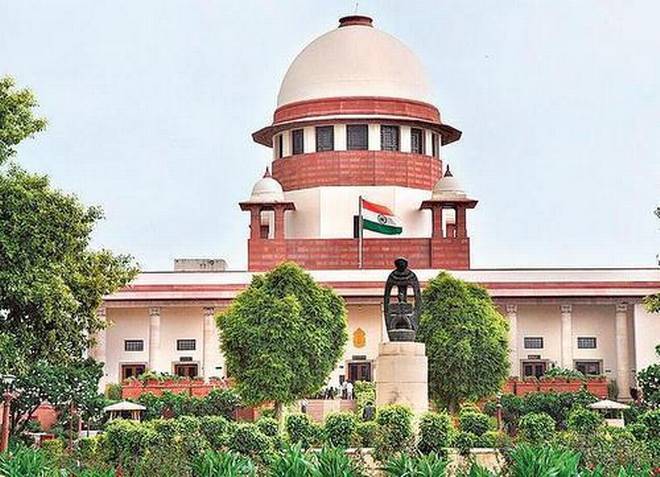NEW DELHI: The Supreme Court Wednesday sought the Centre’s reply on a plea seeking direction to the government to frame specific procedure, rules and guidelines for time-bound disposal of mercy petitions.
The top court said that only thing it may consider is directing the Ministry of Home Affairs (MHA) on time limit for placing the mercy petition before the President.
A bench of Chief Justice S A Bobde and Justices A S Bopanna and Hrishikesh Roy issued notice to the Centre and sought its response within four weeks.
The top court, which was hearing a petition filed by one Shiv Kumar Tripathi through video conferencing, sought to whether there was any timeline for disposal of mercy petitions by President.
Tripathi in his plea has contended that there were no guidelines for disposal of mercy petitions within a particular time frame.
Solicitor General Tushar Mehta, appearing for the Centre, said he needs time to seek instructions and respond to the query.
The bench said that format of mercy petition is not important but what is important is time limit for placing it before the President.
Tripathi has sought a direction to the Centre to fix a time-frame within which a mercy petition has to be decided and “the consequences of not disposing of the mercy petitions within such time frame”.
He said in his plea that since there is no specified written procedure and guidelines for disposing of mercy petitions within a time-bound manner, it results in “arbitrariness” in their disposal.
“It also leads to undue delay in disposal of the mercy petitions and thus giving rise to public unrest and creates doubts and suspicion in the mind of public at large,” it said.
The plea said that in some cases, due to the prolonged delay in disposal of mercy petitions, convicts had taken the benefit and got death penalty converted into life imprisonment.
“The victims and their families feel cheated in such cases. For effective disposal of the mercy petition in a time bound manner and for transparency therein it is must that specific procedure and guidelines for disposing the mercy petitions within a time bound period, are immediately framed and implemented,” it said.
The petition said that power to grant pardon is an extraordinary power and it has to be exercised by the concerned authority with “great care and caution”.
“The principles of natural justice demands that this power shall be exercised uniformly in each and every case. Its beneficiaries ought not to be the extraordinary persons but all deserving individuals,” it said, adding that delay in disposal of mercy petition by the President is “another big problem”.
It said that in August 2008, the Ministry of Home Affairs while replying to a petition had given information to the Central Information Commission (CIC) that there is no written procedure to deal with mercy petition.
The plea said that in United States of America, a convict can apply to the President for pardon on a prescribed form, which is easily available along with necessary instructions that are required to be followed.
It said that in England, if a person is willing to seek pardon, he or she has to file an application before the Home Secretary.
“The framing of rules is necessary for the purpose of transparency,” the plea said, adding that absence of specified procedure and guidelines for time-bound disposal of mercy petitions is resulting in “arbitrariness and discrimination” in their disposal. (AGENCIES)


